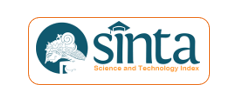RELEVANSI IDE THE OPEN SOCIETY KARL POPPER DAN MULTIKULTURALISME DALAM PEMBELAJARAN SEJARAH
Abstract
Open Society menurut Karl Popper adalah sebuah gagasan yang menentang segala bentuk penindasan dan totalitarianisme, sehingga akan terwujud apa yang disebut masyarakat terbuka, masyarakat yang mengutamakan kebebasan namun tetap dalam koridor hukum dan etika. Masyarakat Terbuka adalah sebuah ide yang menentang sosialisme dan kapitalisme pada saat yang bersamaan. Sebagai sebuah ide penting di era modern, The Open Society Popper harus dapat digunakan dalam kehidupan, seperti halnya pengetahuan yang memiliki landasan aksiologis. Gagasan ini juga erat kaitannya dengan demokrasi yang menjunjung tinggi kebebasan individu dengan tetap dikendalikan oleh hukum. Di satu sisi, Masyarakat Terbuka dapat diimplementasikan dalam gerakan demokrasi pendidikan, yang kemudian disebut pendidikan multikultural, dengan nilai-nilai yang mengakomodasi kebebasan dan persamaan hak individu dalam masyarakat. Tujuan penelitian ini adalah membahas mengenai gagasan The Open Society dan relevansinya dengan pendidikan sejarah, khususnya perihal multikulturalisme. Pembahasan ini dikaji menggunakan metode studi pustaka. Hasil analisis i menunjukkan bahwa The Open Society Popper dapat dimanfaatkan sebagai landasan pendidikan multikultural karena memberikan penghargaan yang tinggi terhadap kebebasan individu dan menentang penguasaan oleh kelompok tertentu, dengan tetap hormat pada hukum.
Keywords
Full Text:
PDFReferences
Abdullah, T. (1985). Sejarah lokal di Indonesia. Gadjah Mada University Press.
Ahmad, T. A. (2016). Sejarah kontroversial di Indonesia: Perspektif pendidikan. Yayasan Pustaka Obor Indonesia.
Banks, J. A. (2014). An introduction to multicultural education (5th ed.). Pearson Education Inc. https://doi.org/10.7748/mhp.3.5.37.s20
Corvi, R. (2005). An introduction to the thought of Karl Popper. Routledge. https://doi.org/10.4324/9780203982570
Eidlin, F. (2013). On the non-existent theory of the open society and the continuing relevance of Popper’s political thought. SSRN Electronic Journal, 1–27. https://doi.org/10.2139/ssrn.2223804
Gaus, G. (2017). The open society and its friends: With friends like these, who needs enemies? The Critique, 2.
Gorton, W. A. (n.d.). Karl Popper: Political philosophy. https://iep.utm.edu/popp-pol/.
Gorton, W. A. (2006). Karl Popper and the social sciences. State University of New York Press.
Hathaway, F. (2019). Review: The open society and its enemies, volume 1, by Karl Popper. https://iea.org.uk/review-the-open-society-and-its-enemies-volume-1-by-karl-popper/
Jordaan, D. W. (2017). The open society: What does it really mean? De Jure Law Journal, 50(2), 396–405. https://doi.org/10.17159/2225-7160/2017/v50n2a11
Kierstead, J. (2019). Karl Popper’s the open society and its enemies, and its enemies. Journal of New Zealand Studies, 28, 2–28.
Lestariningsih, W. A., Jayusman, J., & Purnomo, A. (2018). Penanaman nilai-nilai multikultural dalam pembelajaran sejarah di SMA Negeri 1 Rembang tahun pelajaran 2017/2018. Indonesian Journal of History Education, 6(2), 123–131.
Niiniluoto, I. (n.d.). The open society and its new enemies: Critical reflections on democracy and market economy.
Popper, K. R. (1963). Conjectures and refutations: The growth of scientific knowledge. Routledge & Kegan Paul. https://doi.org/10.2307/2412688
Popper, K. R. (1966). The open sociey and its enemies (5th ed.). Routledge.
Priyadi, S. (2012). Sejarah lokal: Konsep, metode, dan tantangannya. Ombak.
Santosa, Y. B. P. (2017). Problematika dalam pelaksanaan pendidikan sejarah di Sekolah Menegah Atas Kota Depok. Jurnal Candrasangkala: Pendidikan Sejarah, 3(1), 30–36. https://doi.org/10.30870/candrasangkala.v3i1.2885
Septianingsih, S., Joebagio, H., & Sariyatun, S. (2014). Model pembelajaran sejarah berbasis isu-isu kontroversial untuk meningkatkan berpikir historis Mahasiswa (studi pada mahasiswa Sejarah Universitas Muhammadiyah Purwokerto). Historika: Journal of History Education Research, 15(2), 98–109.
Supardi, S. (2014). Pendidikan multikultural dalam pembelajaran sejarah lokal. Jurnal Pembangunan Pendidikan: Fondasi Dan Aplikasi, 2(1), 91–99. https://doi.org/10.21831/jppfa.v2i1.2621
Tim Dosen Filsafat Ilmu Fakultas Filsafat UGM. (2016). Filsafat ilmu sebagai dasar pengembangan ilmu pengetahuan. Liberty.
Yuliantoro, M. N. (2017). Kritik Popper terhadap problem historisisme. https://sosialpolitik.filsafat.ugm.ac.id/2017/07/28/kritik-popper-terhadap-problem-historisisme/
Zed, M. (2004). Metode penelitian Kepustakaan. Yayasan Obor Indonesia.
DOI: http://dx.doi.org/10.17977/um0330v5i1p37-48
Refbacks
- There are currently no refbacks.

This work is licensed under a Creative Commons Attribution-ShareAlike 4.0 International License.
Editorial office:
History Department, Faculty of Social Science,
Universitas Negeri Malang
Jl. Semarang No.5 Kota Malang 65145,
Phone. (0341) 551312,
email: jpsi@um.ac.id
Website: http://journal2.um.ac.id/index.php/sejarah/index
E-ISSN 2622-1837

This work is licensed under a CC BY SA 4.0.








